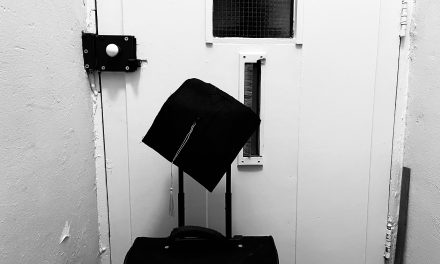Authors: Lara van Erp and Charlotte Buma
While Brussels is known as the heart of the European Union, it’s also simply the capital of Belgium; a country divided linguistically between the Dutch-speaking Flanders and the French-speaking Wallonia. By law, all government institutions in Brussels must serve citizens in both languages. However, in practice, Dutch speakers say that rule is often ignored. French dominates daily life in the city, leaving many Flemish residents feeling ignored in their own capital.
Earlier this year, the debate about the ‘’administrative language legislation’’ sparked again after an incident involving a train conductor greeting passengers bilingually. News outlet ‘Bruzz’ reported on a conductor who greeted passengers with both “goeiedag” and “bonjour”, while the train was still technically in Flanders. That simple bilingual greeting was considered a violation of the language law, which requires public services on Flemish territory to address passengers exclusively in Dutch.
The incident triggered national discussion. The Belgian railway company NMBS, represented by spokesperson Dimitri Temmerman, said the company does everything possible to follow the law, but admits that strict compliance is not always easy. “Sometimes we wish the rules allowed a bit more flexibility,” he says.
For Michael Discart, president of the Flemish nationalist movement Vlaamse Volksbeweging (VVB), the opposite is true. He argues that strict enforcement is essential. “There is a law for a reason’’ the says. “If you allow people to freely speak two languages, after one generation Flemish will disappear and Brussels will be only French speaking.”
Wouter Brouns, member of the The New Flemish Alliance (N-VA), the biggest political party in Flanders mentions the law simply is not always respected. “There is still a lot of work to be done by the N-VA to respect and comply with the language law in Brussels.”, he says. According to him, ignoring the rules has real consequences for the Dutch-speaking minority: “If the language laws aren’t respected, it becomes very difficult for Dutch speakers to feel at home in Brussels.”
From Trains to Hospitals: A Broader Debate
The conductor incident may have sparked the latest controversy, but the VVB is now focused on an issue it considers far more urgent: healthcare. Complaints about missing Dutch-language assistance in Brussels hospitals have been piling up for years. Discart says the organization is preparing collective legal action on behalf of patients who felt discriminated against. “It’s absurd that in 2025 we still have to go to court to enforce basic language rights that already exist,” he says. For him, the stakes go beyond linguistic correctness: “In sensitive situations, with children, the elderly, victims of violence, language is not a detail. It’s about dignity and understanding.”
The View from the Language Commission
To understand how Belgium’s language legislation is monitored, we spoke to Sven Vaneycken, the chair of the Vaste Commissie voor Taaltoezicht (VCT), and Nele Beckers, the leading civil servant of the Commission, the federal body responsible for overseeing compliance with administrative language laws.
They describe a structural mismatch at the heart of Brussels. Legally, the region is fully bilingual, but in reality daily life is multilingual, with French as the dominant working language. Most complaints the VCT receives come from Brussels, especially from citizens who were unable to receive services in Dutch by police officers or in public hospitals. As Beckers notes, “The biggest pain point in complying with the language law in Brussels is healthcare, because it concerns people’s health. If you go to a desk and are not helped in your own language, it is uncomfortable, and can have serious consequences. The same applies to the police, where we regularly receive complaints.”
The root of the problem, according to the VCT, lies in structural constraints. ”Only 10-20% of police officers in Brussels are proficient in the region’s second language, which is a clear violation of the language legislation” Beckers mentions. When the VCT issues recommendations, agencies often respond: “We try to encourage our staff to take language courses.” She further explains: “You know where the problem lies, that there aren’t enough people with knowledge of the second language, and the origin of that problem is education. As a supervisory body, all we can do is insist that people comply with the second-language requirement, we cannot force it. For governments, it is not easy.”
When asked why some employees without the required language skills were even hired, Beckers says, “In principle, they shouldn’t be employed. What they tell us is: ‘We need people, we have too few, and the only people we find are those who don’t know the second language.’” Vaneycken adds, “There are no bilingual unemployed people.” The situation shows that legal requirements collide with practical staffing realities, creating a compliance gap that is difficult to close.
Language initiatives in Brussels
Despite French being dominant in Brussels, the motivation to learn Dutch is significant. Research by ‘het Huis van het Nederlands’ in Brussels, the agency coordinating Dutch-language courses, shows that many francophones and other learners approach Dutch as a practical tool. Work opportunities are a key driver: over 80% of new learners hope that improving their Dutch will enhance job prospects or promotion chances. As Marianne Wals, spokesperson for the Huis van het Nederlands, explains, “The majority of Brussels residents speak French, but you see many people saying, ‘I’m going to improve my Dutch to increase my chances of getting a job.’”
This motivation is reinforced by initiatives in the private sector. According to Wouter Brouns (N-VA), a private hospital in Brussels is running a project aimed at improving the overall language situation in hospitals. He explains: ‘’I am working with Minister Van Achter. She recently announced a collaboration with a private hospital. The minister has initiated a project with a private hospital to improve bilingualism. Very concretely, the language skills of the staff are mapped, and based on their level, they can take language courses to reach the required proficiency. If they achieve this level, they receive a bilingualism bonus, paid by the hospital, and if they want to reach a higher level than required, the bonus increases accordingly. The intention behind this is to improve the overall language situation.”
Brussels still has a long way to go in fully enforcing its language legislation, with staffing shortages and educational gaps creating persistent challenges. Yet initiatives such as Dutch-language courses for residents and bilingualism projects in private hospitals show that progress is possible. These efforts demonstrate that practical solutions can complement legal requirements, helping Dutch speakers feel more at home in their city. While much work remains, there is a clear push toward bridging the gap between law and everyday practice.




